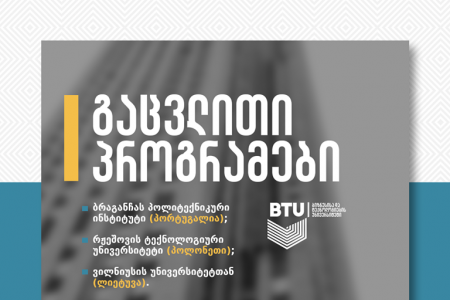
Exchange Programs
Exchange Programs at Business and Technology University:
- Polytechnic Institute of Bragança (Portugal);
- Warsaw University of Technology (Poland);
- Vilnius University (Lithuania).
Not a member yet? Register now
Are you a member? Login now